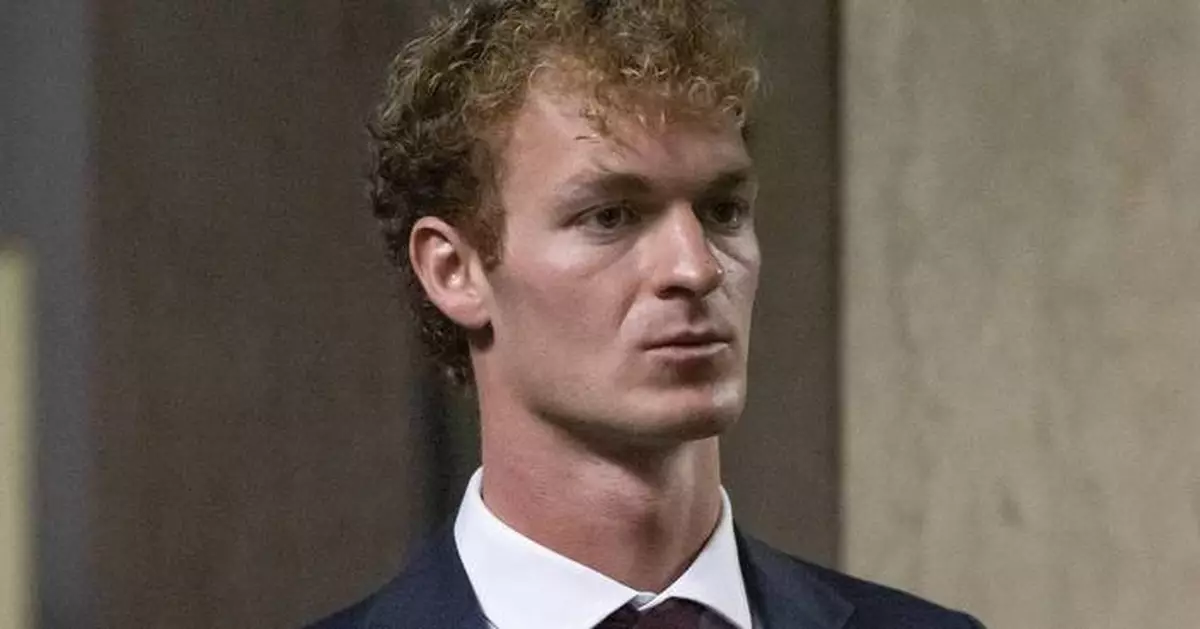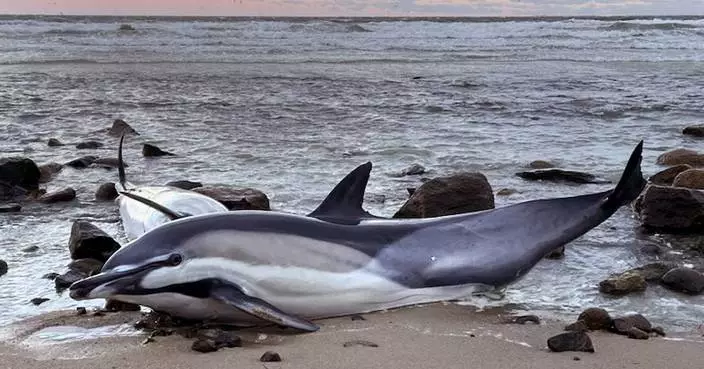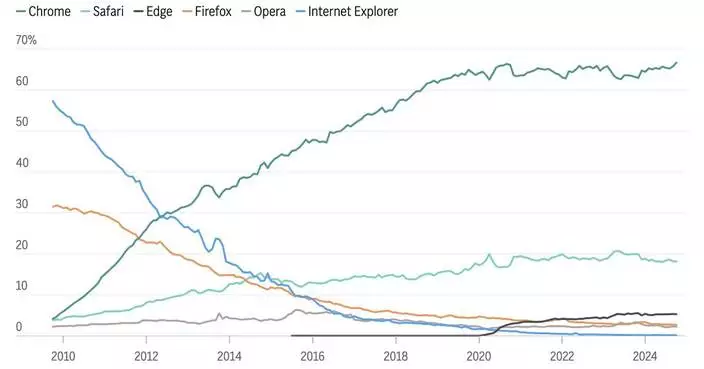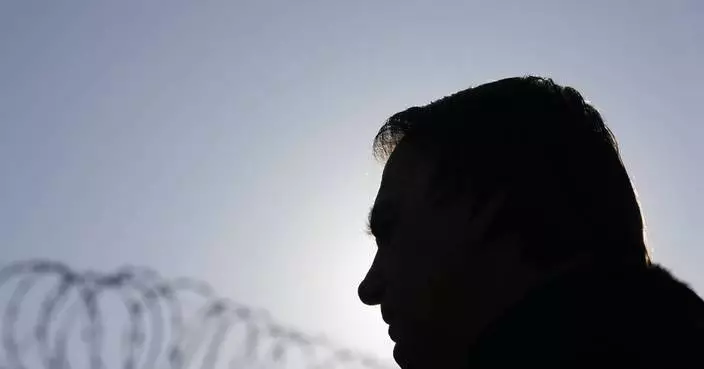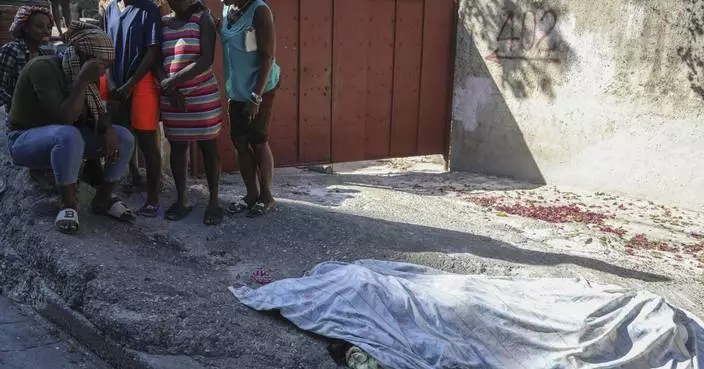NEW YORK (AP) — For roughly six minutes, Jordan Neely was pinned to a subway floor in a chokehold that ended with him lying still. But that's not what killed him, a forensic pathologist testified Thursday in defense of the military-trained commuter charged with killing Neely.
Dr. Satish Chundru disputed a New York City medical examiner's determination that Daniel Penny’s chokehold killed Neely, who was behaving erratically on a subway the two men were riding. Penny's defense says that he acted to protect frightened passengers and was trying only to restrain Neely, not to kill him.
The white Marine veteran's reaction to Neely, who was Black, homeless and mentally ill, has become a flashpoint in national divides over race, urban life and the boundary between self-defense and vigilantism.
Penny's lawyers have argued throughout the trial that his pressure on Neely's neck wasn't sufficient and consistent enough to be lethal. The attorneys brought Chundru to the witness stand to shed light on their argument.
He told jurors that Neely's medical records and bystander video don't show telltale signs of known types of fatal chokeholds.
Among the discrepancies, he said: the location and extent of bruising on Neely's neck, and the small amount of petechiae — small red spots caused by subsurface bleeding — on his eyelids.
“In your opinion, did Mr. Penny choke Mr. Neely to death?" defense lawyer Steven Raiser asked.
“No,” replied Chundru, who has worked as a medical examiner for county governments in Florida and Texas.
He said Neely died from "the combined effects” of synthetic marijuana, schizophrenia, his struggle and restraint, and a blood condition that can lead to fatal complications during exertion.
“The chokehold did not cause death,” the pathologist said.
Prosecutor Dafna Yoran later sought to show that some aspects of Chundru's testimony, including about petechiae, departed from some medical literature and even his own opinion in other cases. He responded that the comparisons weren't comparable.
His testimony starkly contrasted with the findings of Dr. Cynthia Harris, the city medical examiner who performed Neely's autopsy.
She told jurors earlier in the trial that Neely suffered “an asphyxial death” as a result of the chokehold. She called it “profoundly improbable” that Neely’s death was due to synthetic marijuana use and sickle cell condition, which is related but not equivalent to sickle cell disease.
Within the medical examiner’s office, “the consensus was unanimous” that Neely had died from the chokehold, Harris said, adding: “There are no alternative reasonable explanations.”
A Marine Corps combat instructor who trained Penny testified earlier that the veteran didn't use the chokehold properly when he restrained Neely.
Penny, 26, has pleaded not guilty to manslaughter and criminally negligent homicide. His defense says the Marine veteran and architecture student was defending himself and a car full of subway riders.
Neely, 30, sometimes entertained subway riders as a Michael Jackson impersonator. But he also had a history of psychiatric and drug problems and a criminal record that included assaulting a woman at a subway station.
When they crossed paths in a subway car on May 1, 2023, Neely was begging for money, shouting about being willing to die or go to jail, and making sudden movements, according to witnesses. Penny's lawyers have said Neely lurched toward a woman with a small child and said, “I will kill.”
Penny put his arm around Neely's neck, took him to the floor and held Neely there, with Penny’s legs around him, for close to six minutes, bystander videos show. Neely had stopped moving during roughly the last minute.
Penny's attorneys have said he continued to hold on, while urging onlookers to call police, because Neely had tried at points to break free.
Prosecutors maintain he applied too much force for too long.
Associated Press writer Jake Offenhartz contributed.
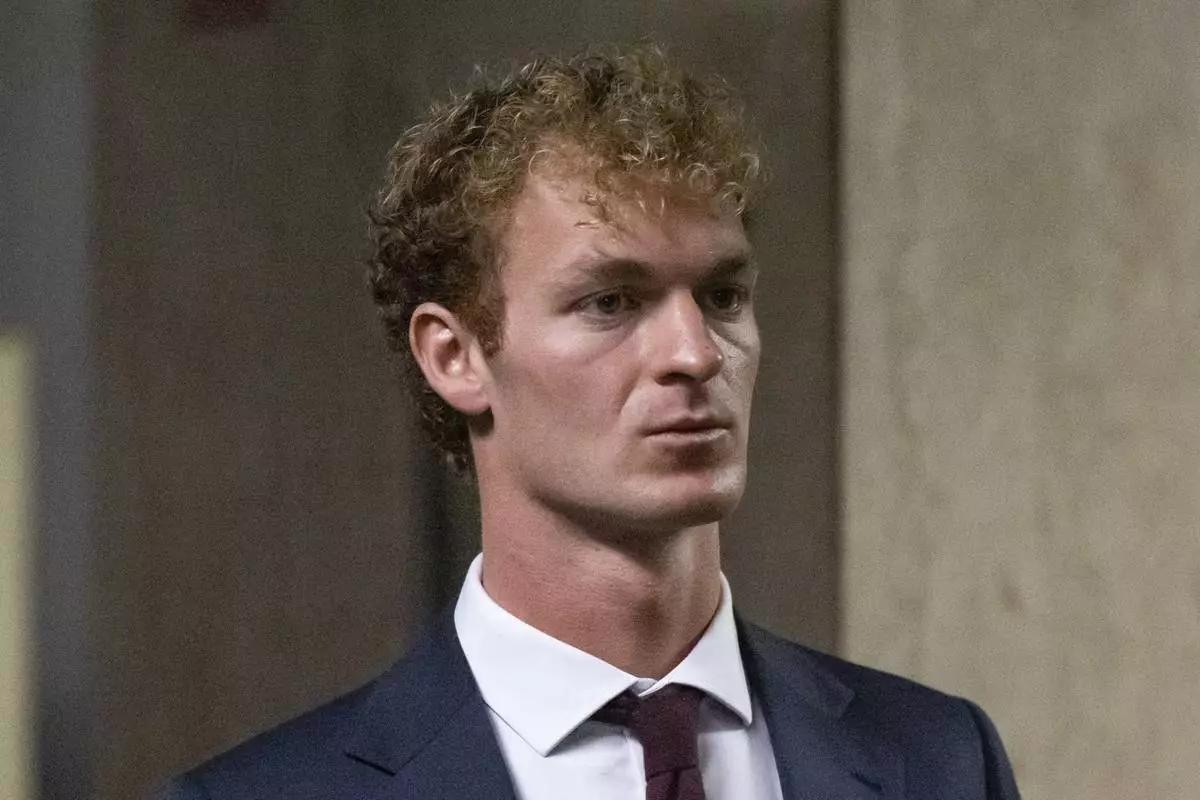
Daniel Penny leaves the courtroom for a lunch break in New York, Monday, Nov. 18, 2024. (AP Photo/Yuki Iwamura)
THE HAGUE (AP) — The world’s top war-crimes court issued arrest warrants Thursday for Israeli Prime Minister Benjamin Netanyahu, his former defense minister and Hamas’ military chief, accusing them of crimes against humanity in connection with the 13-month war in Gaza.
The warrants said there was reason to believe Netanyahu and former Defense Minister Yoav Gallant have used “starvation as a method of warfare” by restricting humanitarian aid and have intentionally targeted civilians in Israel’s campaign against Hamas in Gaza — charges Israeli officials deny.
The action by the International Criminal Court came as the death toll from Israel’s campaign in Gaza passed 44,000 people, according to local health authorities, who say more than half of those killed were women and children. Their count does not differentiate between civilians and combatants.
Experts say hunger has become widespread across Gaza and may have reached famine levels in the north of the territory, which is under siege by Israeli troops. Israel says it has been working hard to improve entry of aid, though the trickle of supplies into Gaza remains near the lowest levels of the war.
Netanyahu condemned the warrant against him, saying Israel “rejects with disgust the absurd and false actions” by the court. In a statement released by his office, he said: “There is nothing more just than the war that Israel has been waging in Gaza.”
Gallant, in a statement, said the decision "sets a dangerous precedent against the right to self-defense and moral warfare and encourages murderous terrorism.”
The warrant marked the first time that a sitting leader of a major Western ally has been accused of war crimes and crimes against humanity by a global court of justice. The decision turns Netanyahu and the others into internationally wanted suspects, putting them at risk of arrest when they travel abroad and potentially further isolating them.
Israel and its top ally, the United States, are not members of the court. But others of Israel's allies, including some of its close European friends, are put in an awkward position. Several, including France, welcomed the court's decision and signaled they might arrest Netanyahu if he visited.
The move “represents the most dramatic step yet in the court’s involvement in the conflict between Israel and Hamas," said Anthony Dworkin, senior policy fellow at the European Council on Foreign Relations.
Israeli leaders, politicians and officials across the spectrum denounced the warrants and the ICC. The new defense minister, Israel Katz, who replaced Gallant earlier this month, said Thursday’s decision is “a moral disgrace, entirely tainted by antisemitism, and drags the international judicial system to an unprecedented low.”
Human rights groups applauded the move.
The warrants against both sides “break through the perception that certain individuals are beyond the reach of the law,” the associate international justice director at Human Rights Watch, Balkees Jarrah, said in a statement.
The decision came six months after ICC Chief Prosecutor Karim Khan requested the warrants.
The court issued a warrant for Mohammed Deif, head of Hamas’ armed wing, over the Oct. 7, 2023, attacks that triggered Israel’s offensive in Gaza. It said it found reasonable grounds to believe Deif was involved in murder, rape, torture and the taking of hostages amounting to war crimes and crimes against humanity.
In the Hamas-led attack, militants stormed into southern Israel, killing 1,200 people — mostly civilians — and taking some 250 others hostage. Around 100 Israelis remain captive in Gaza, around a third of them believed to be dead.
Khan withdrew requests for warrants for two other senior Hamas figures, Yahya Sinwar and Ismail Haniyeh, who have both since been killed. Israel says it also killed Deif in an airstrike, but Hamas has never confirmed his death.
The warrants for Netanyahu and Gallant were issued by a three-judge panel in a unanimous decision. The panel said there were reasonable grounds to believe that both men bear responsibility for the war crime of starvation and the crimes against humanity of murder, persecution and other inhumane acts.
The judges said the lack of food, water, electricity, fuel and specific medical supplies created conditions “calculated to bring about the destruction of part of the civilian population in Gaza,” including the deaths of children due to malnutrition and dehydration.
They also found that by preventing hospital supplies and medicine from getting into Gaza, doctors were forced to operate, including performing amputations, without anesthesia or with unsafe means of sedation that led to “great suffering.”
Israeli diplomatic officials said the government is lobbying the international community to speak out against the warrants and is considering an appeal to the court. The officials spoke on condition of anonymity pending a formal decision on how the government will proceed.
Despite the warrants, none of the suspects is likely to face judges in The Hague anytime soon. Member countries are required to detain suspects facing a warrant if they set foot on their soil, but the court has no way to enforce that.
For example, Russian President Vladimir Putin, wanted on an ICC warrant for alleged war crimes in Ukraine, recently visited Mongolia, a member state in the court but also a Russian ally. He was not arrested.
Still, the threat of arrest now complicates any travel abroad by Netanyahu and Gallant. EU foreign policy chief Josep Borrell said the warrants are binding on all 27 members countries of the European Union.
France signaled it could arrest Netanyahu if he came to its territory. Foreign Ministry spokesman Christophe Lemoine called it a “complex legal issue” but said France supports the court’s actions.
“Combating impunity is our priority,” he said. “Our response will align with these principles.”
Hamas in a statement welcomed the warrants against Netanyahu and Gallant but made no mention of the one against Deif.
Israel’s opposition leaders fiercely criticized the ICC’s move. Benny Gantz, a retired general and political rival to Netanyahu, said it showed “moral blindness” and was a “shameful stain of historic proportion that will never be forgotten.”
Israel’s campaign has caused heavy destruction across Gaza and driven almost the entire population of 2.3 million people from their homes, leaving most dependent on aid to survive.
Two days after Hamas’ attack on southern Israel, Gallant announced a total seal on Gaza, vowing not to let in food, fuel or other supplies. Under U.S. pressure, Israel began allowing a trickle of humanitarian aid to enter a few weeks later.
Israel now says it puts no limit on the supplies permitted into Gaza, and it blames the U.N. distribution system. But Israel's official figures show the amount of aid it has let in has plunged since the beginning of October. The U.N has blamed Israeli military restrictions, along with widespread lawlessness that has led to theft of aid shipments.
The case at the ICC is separate from another legal battle Israel is waging at the top U.N. court, the International Court of Justice, in which South Africa accuses Israel of genocide, an allegation Israeli leaders staunchly deny.
Lawyers for Israel argued in court that the war in Gaza was a legitimate defense of its people and that it was Hamas militants who were guilty of genocide.
Associated Press journalists Raf Casert in Brussels, Mike Corder in The Hague and Josef Federman in Jerusalem contributed to this report.
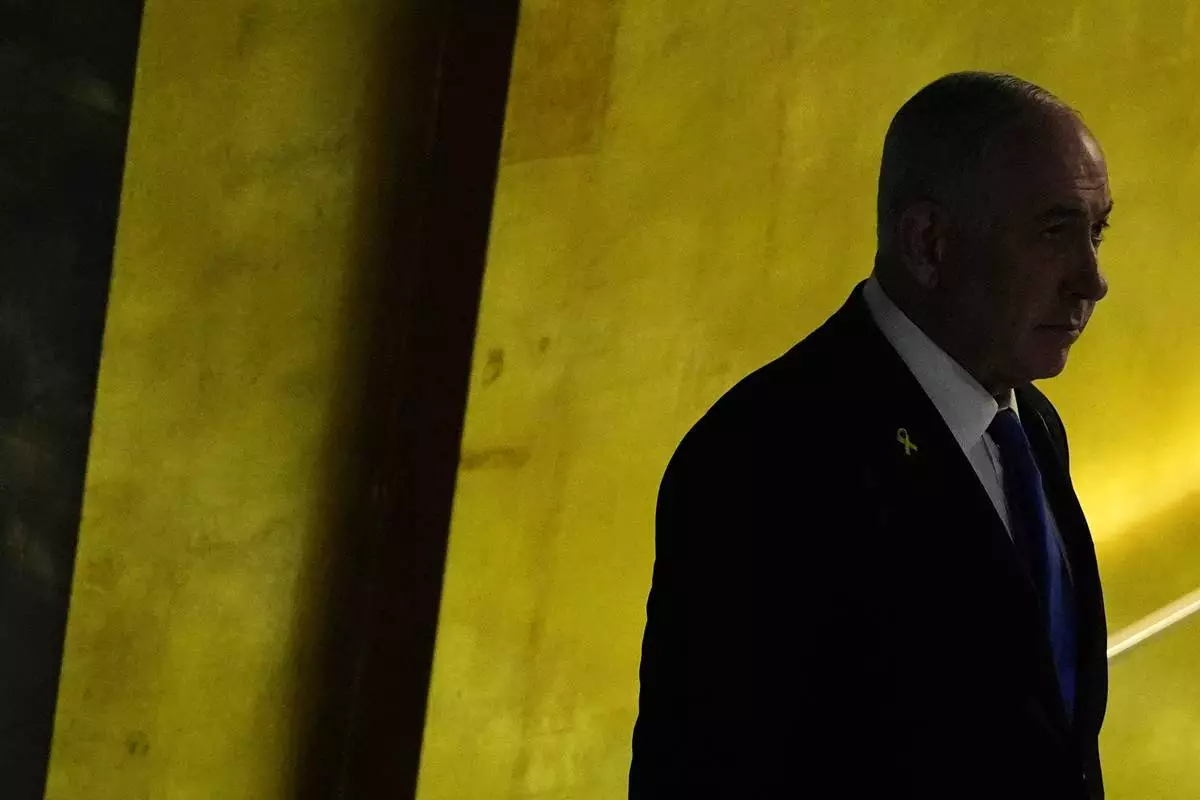
FILE - Prime Minister of Israel Benjamin Netanyahu enters the 79th session of the United Nations General Assembly, Friday, Sept. 27, 2024. (AP Photo/Pamela Smith, File)
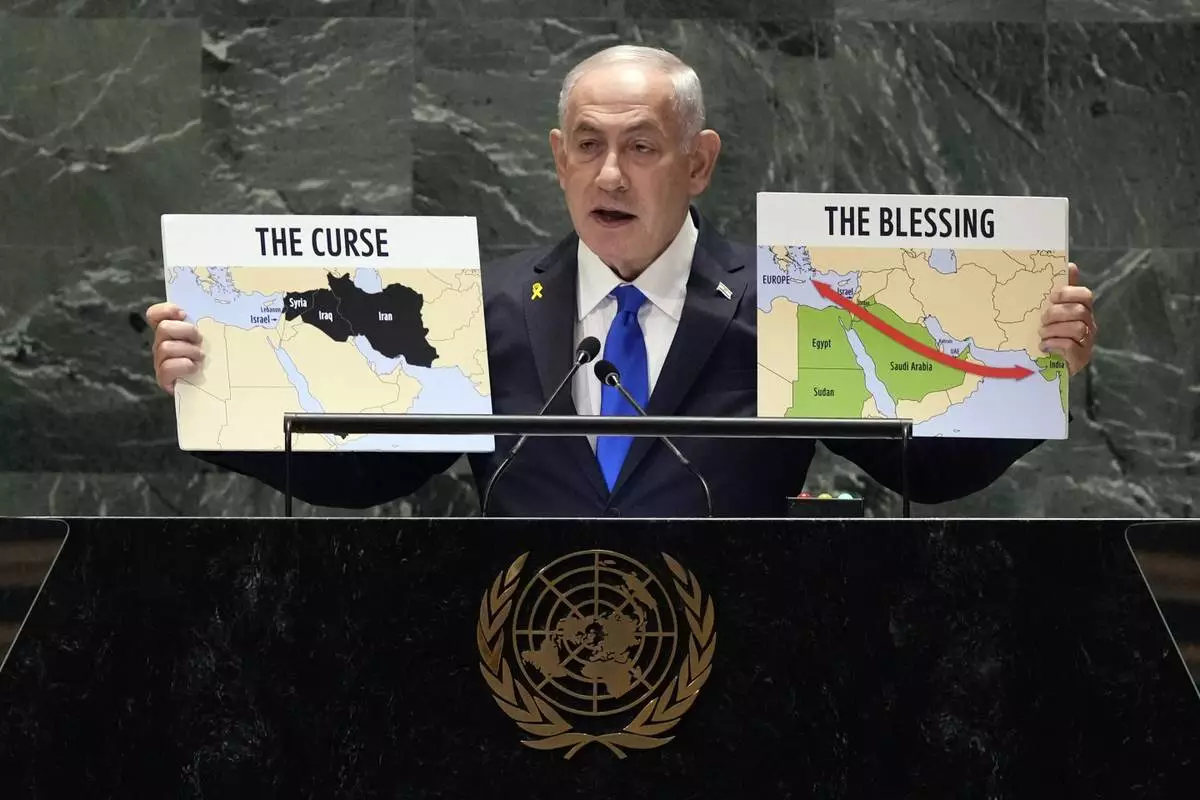
FILE - Israel Prime Minister Benjamin Netanyahu addresses the 79th session of the United Nations General Assembly, Friday, Sept. 27, 2024. (AP Photo/Richard Drew, File)
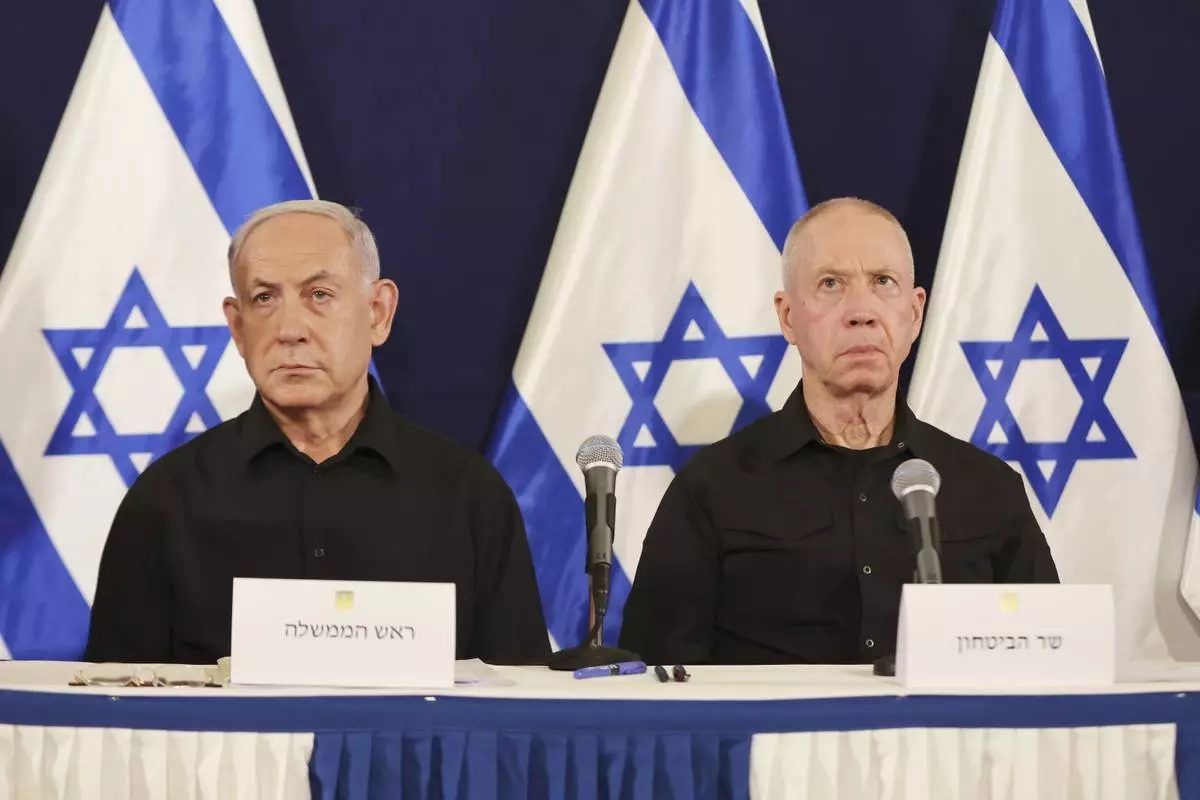
FILE - Israeli Prime Minister Benjamin Netanyahu, left, and Defense Minister Yoav Gallant attend a press conference in the Kirya military base in Tel Aviv, Israel, Saturday, Oct. 28, 2023. (Abir Sultan/Pool Photo via AP, File)
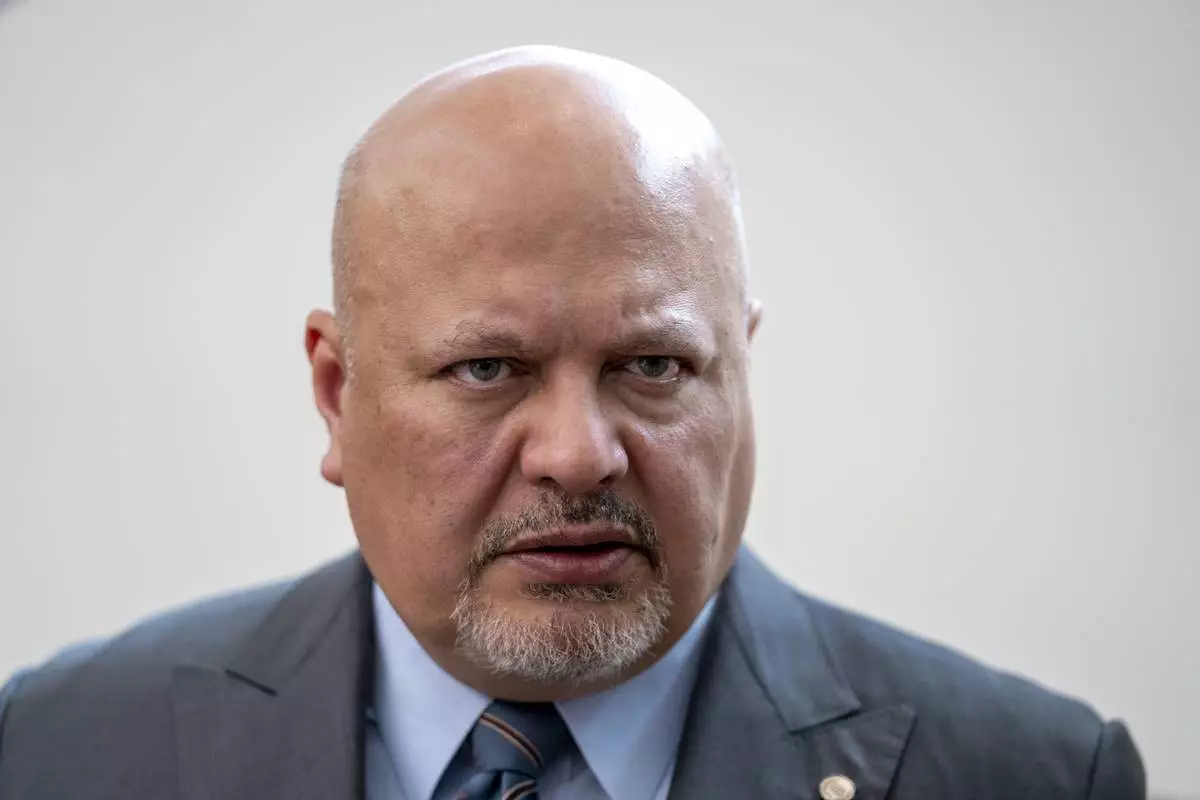
FILE - Karim Khan, Prosecutor of the International Criminal Court looks up prior to a press conference in The Hague, Netherlands, Monday, July 3, 2023. (AP Photo/Peter Dejong, File)
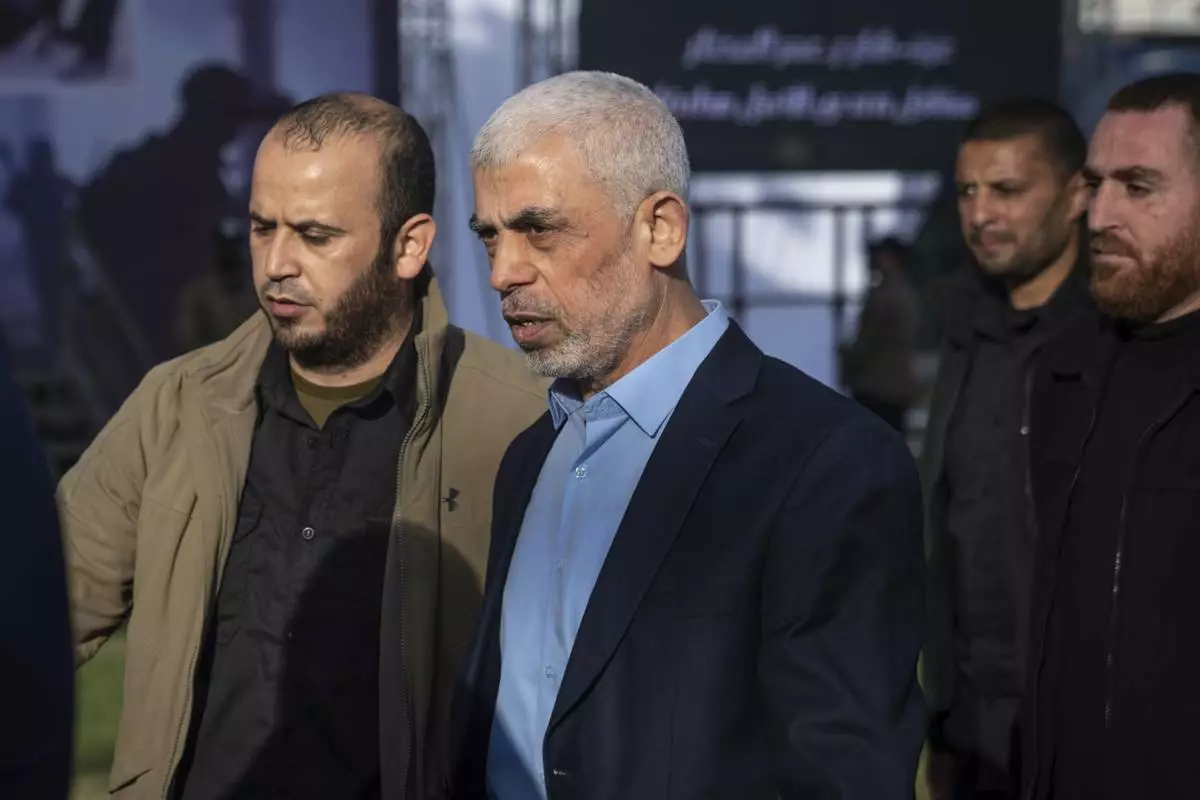
FILE - Yehiyeh Sinwar, head of Hamas in Gaza, attends a rally marking "Jerusalem Day," or Al-Quds Day, an annual celebration to support Palestinians in the holy city, at a soccer filed in Gaza City, on April 14, 2023. (AP Photo/Fatima Shbair, File)
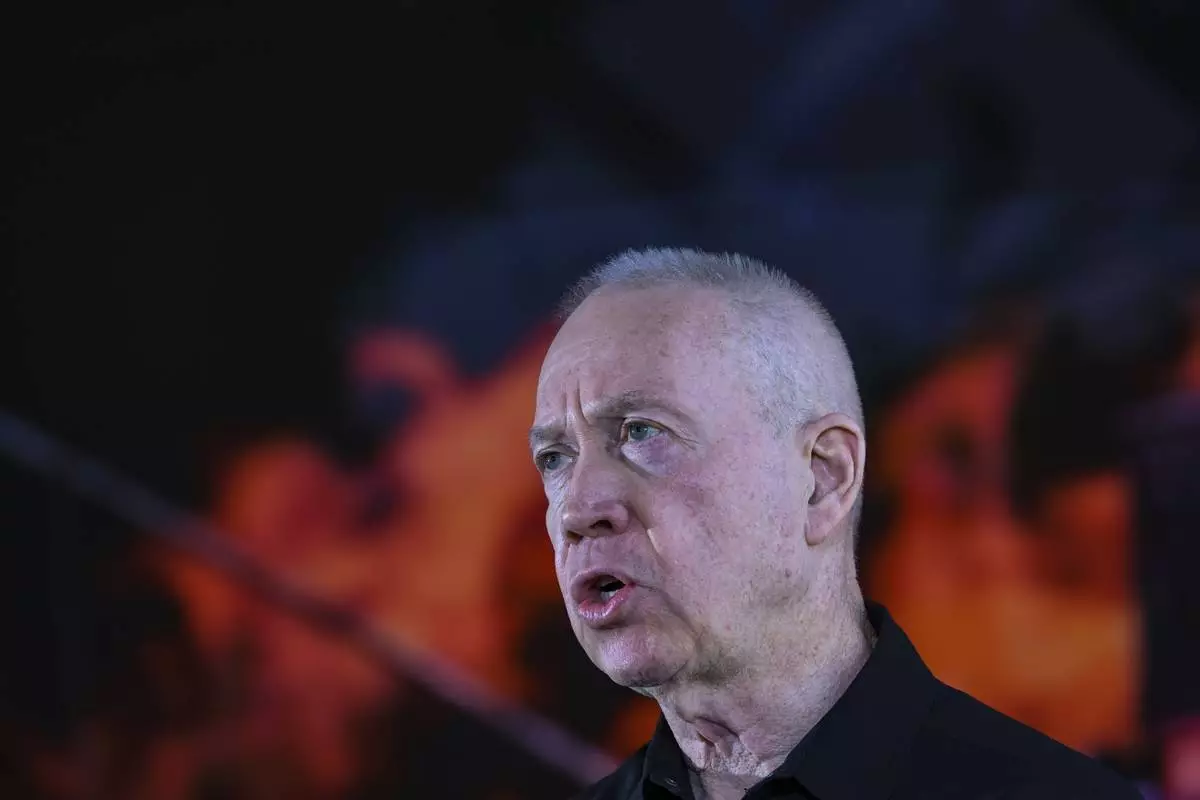
FILE - Israel's Defense Minister Yoav Gallant speaks during a ceremony marking the Hebrew calendar anniversary of the Hamas attack on October 7 last year that sparked the ongoing war in Gaza, at the Mount Herzl military cemetery in Jerusalem, Israel Sunday Oct. 27, 2024. (Gil Cohen-Magen/Pool Photo via AP, File)
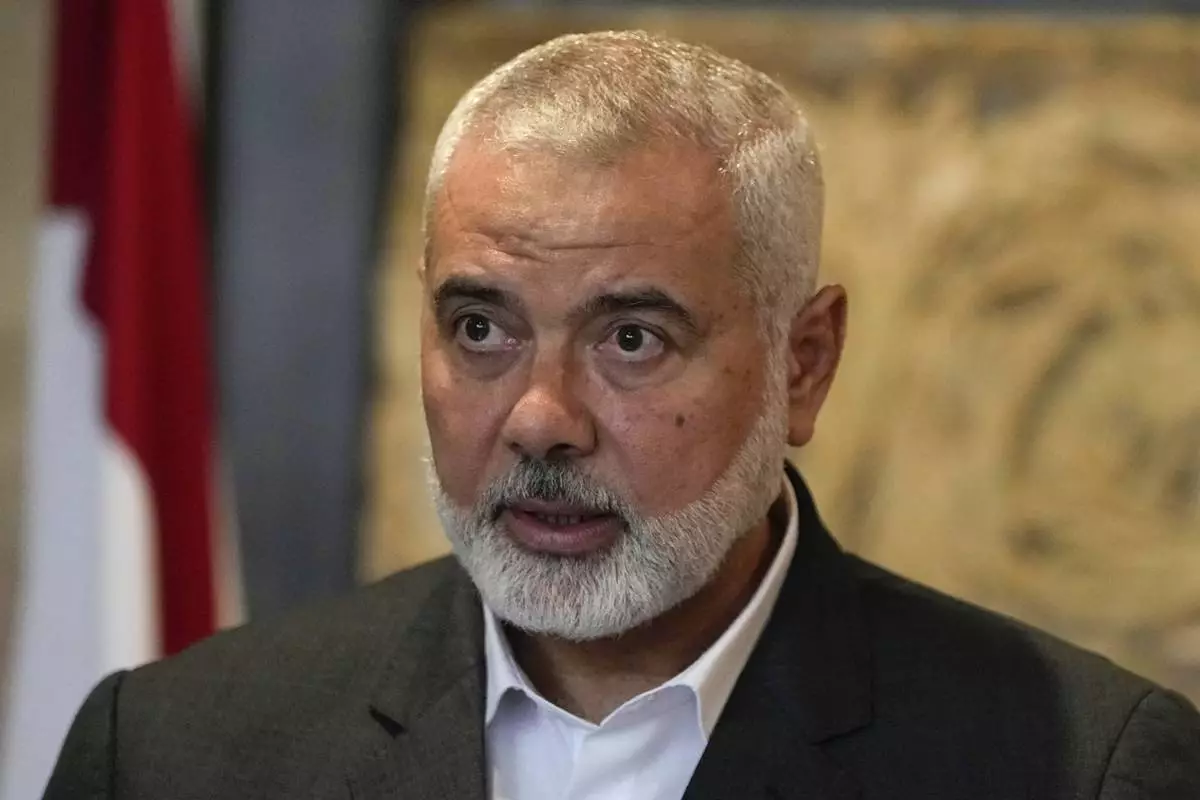
FILE - Ismail Haniyeh, leader of the Palestinian militant group Hamas, speaks to journalists after his meeting with Lebanese Parliament Speaker Nabih Berri, in Beirut, Lebanon, June 28, 2021. (AP Photo/Hassan Ammar, File)
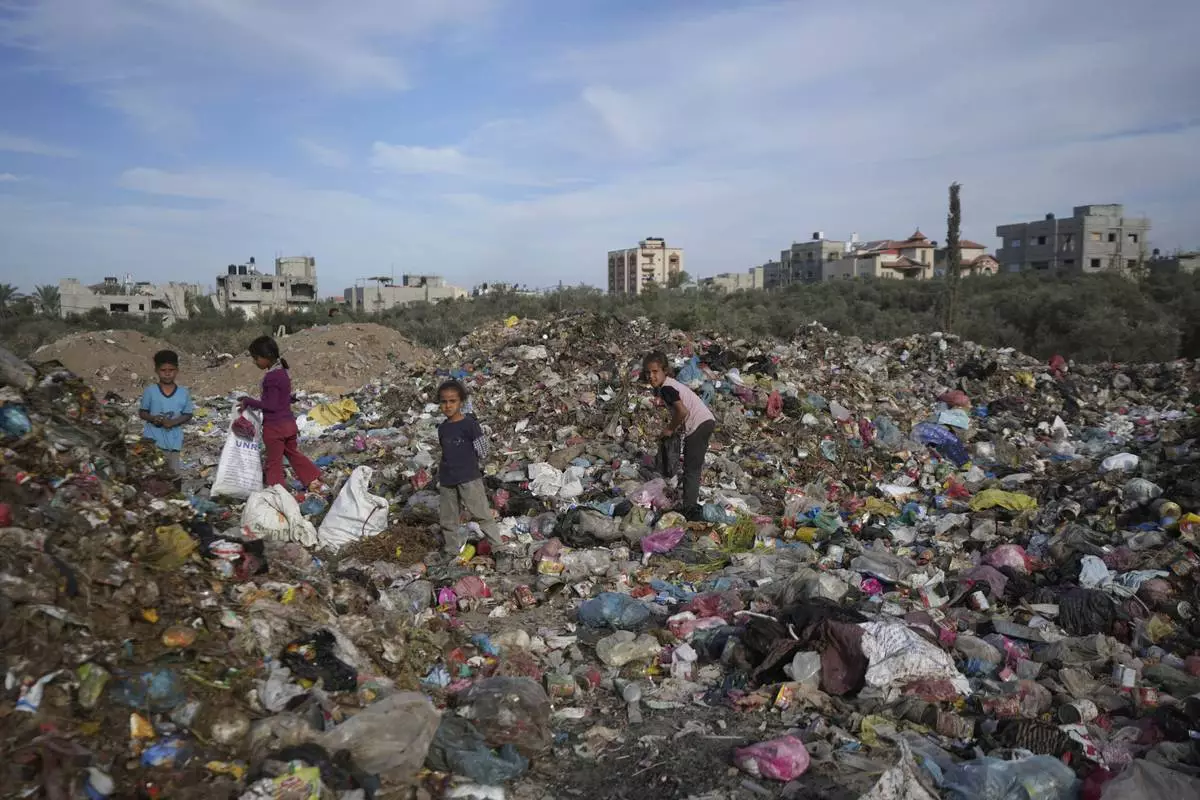
Palestinian kids sort through trash at a landfill in Zawaida, Gaza Strip, Sunday, Nov. 17, 2024. (AP Photo/Abdel Kareem Hana)
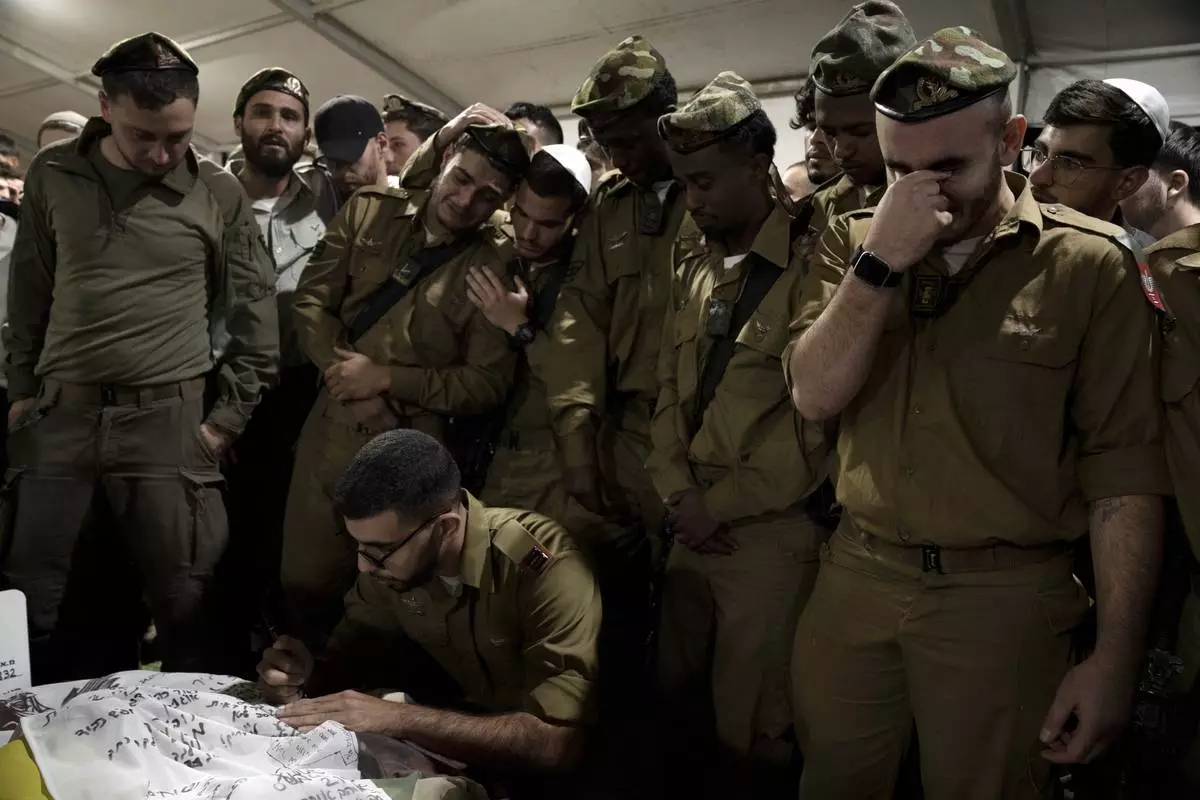
Israeli Defense Forces soldiers mourn at the grave of Sgt. First Class (res.) Roi Sasson, who was killed in action in the Gaza Strip, during his funeral at Mt. Herzl military cemetery in Jerusalem, Wednesday, Nov. 20, 2024. (AP Photo/Maya Alleruzzo)
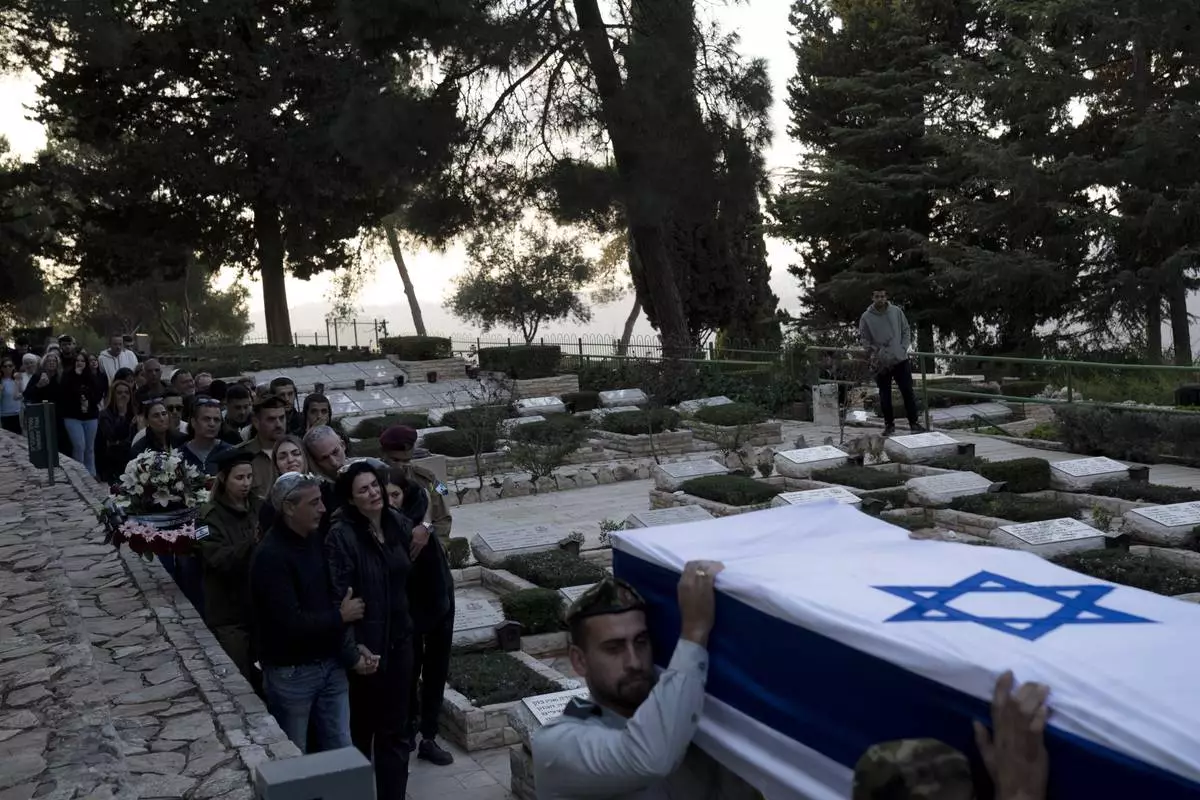
The family of Israeli Defense Forces Sgt. First Class (res.) Roi Sasson, who was killed in action in the Gaza Strip, walk behind his coffin during his funeral at Mt. Herzl military cemetery in Jerusalem, Wednesday, Nov. 20, 2024. (AP Photo/Maya Alleruzzo)
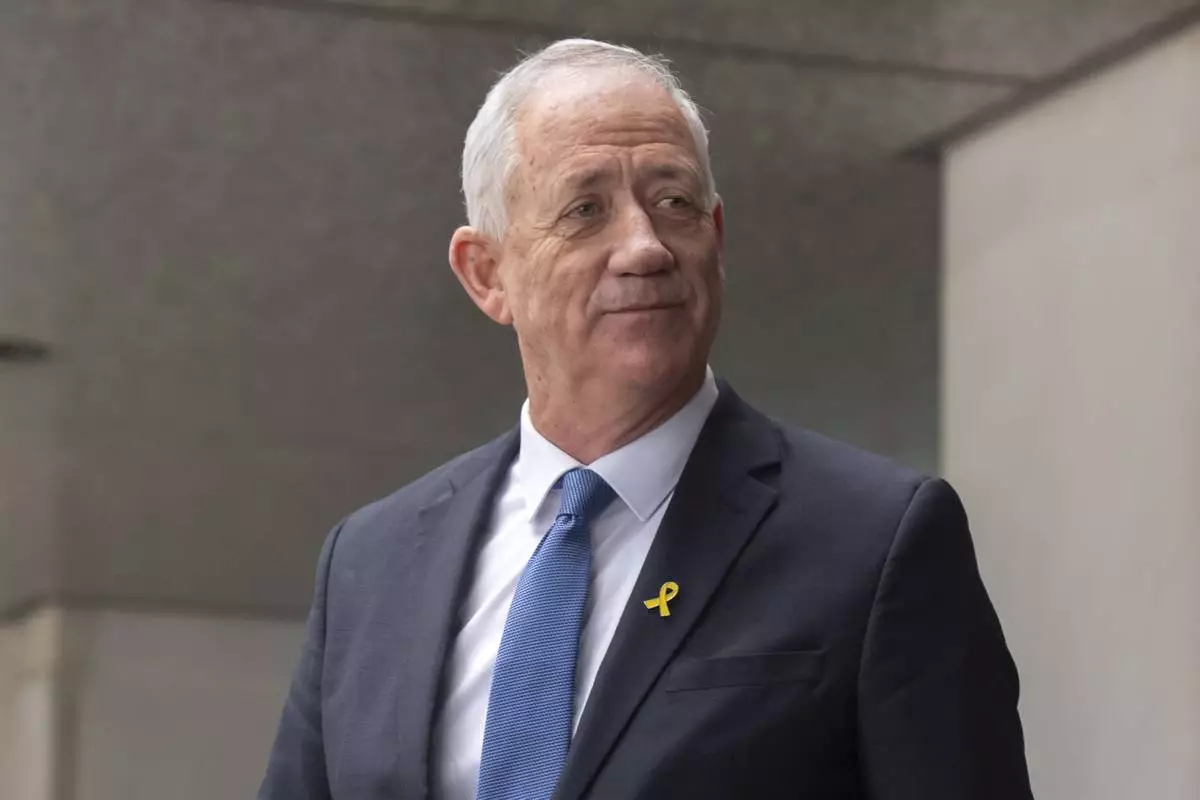
FILE - Benny Gantz, a key member of Israel's War Cabinet and the top political rival of Israeli Prime Minister Benjamin Netanyahu, leaves after a meeting at the State Department, Tuesday, March 5, 2024, in Washington. (AP Photo/Mark Schiefelbein, File)
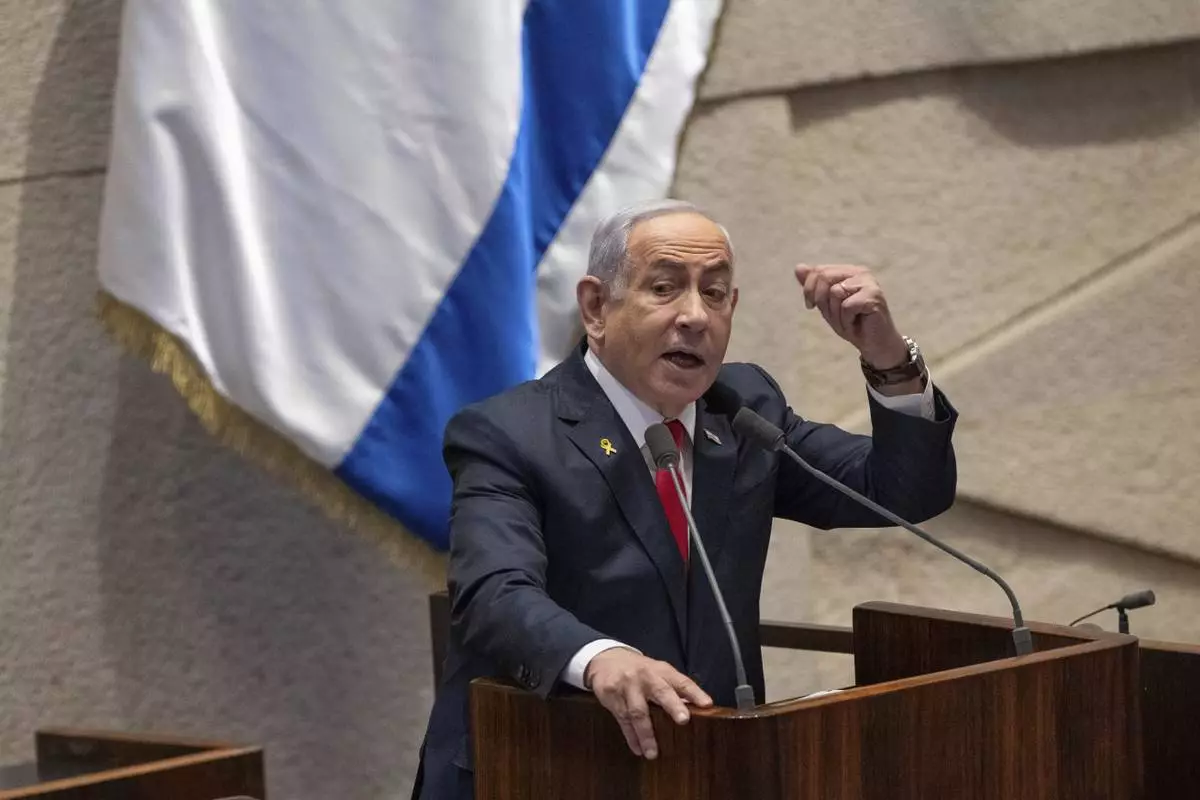
FILE - Israel's Prime Minister Benjamin Netanyahu addresses lawmakers in the Knesset, Israel's parliament, in Jerusalem. Monday Nov. 18, 2024. (AP Photo/Ohad Zwigenberg, File)
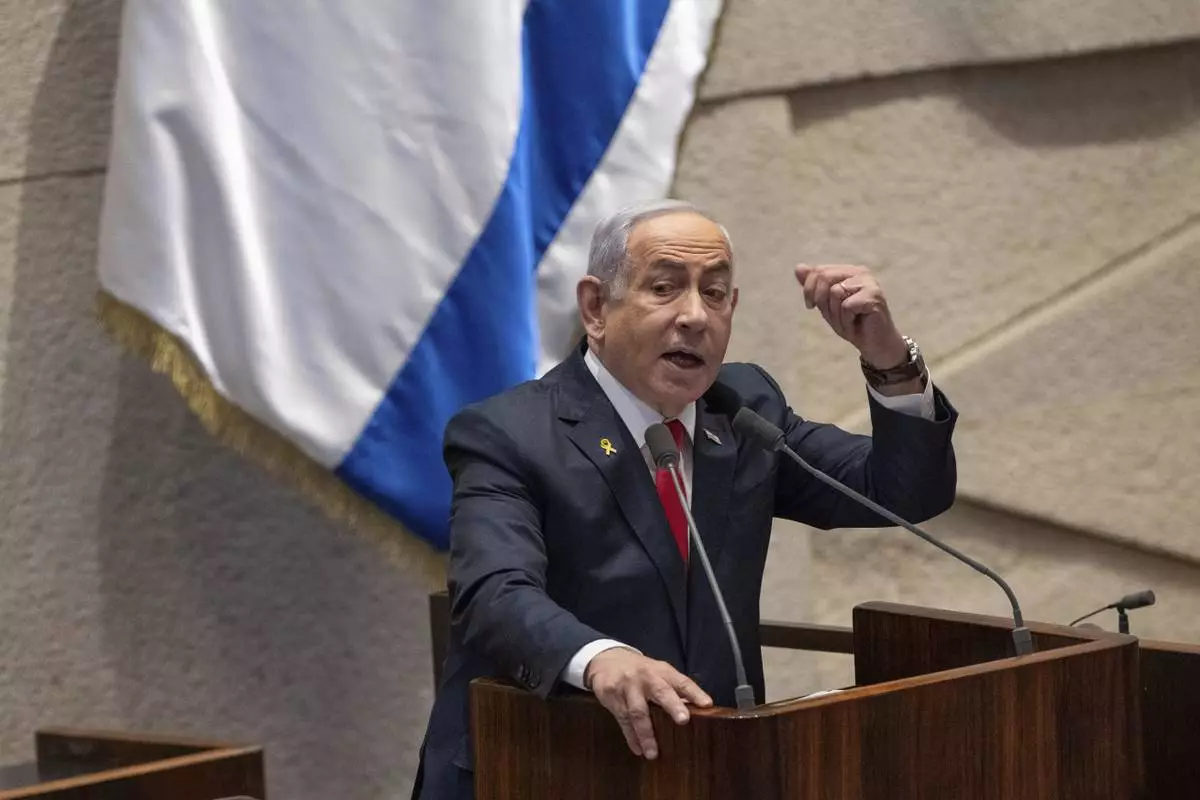
Israel's Prime Minister Benjamin Netanyahu addresses lawmakers in the Knesset, Israel's parliament, in Jerusalem. Monday Nov. 18, 2024. (AP Photo/Ohad Zwigenberg)



